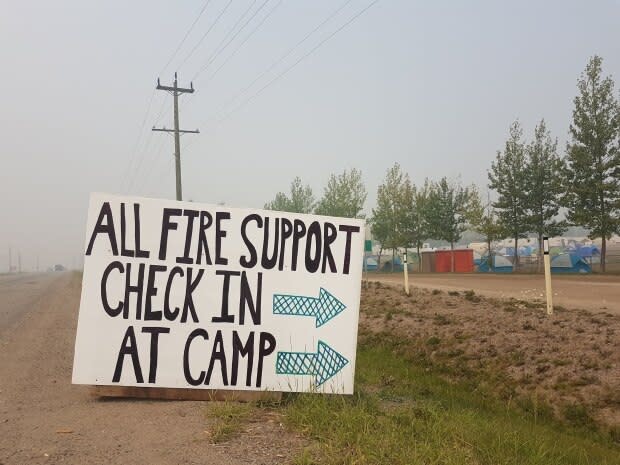Wildfire camps ramp up ability for crews to physically distance ahead of fire season
There's fighting walls of fire that threaten lives, communities and wildlife. And then there's doing it in the context of a global pandemic.
That's the reality that fire crews across B.C. are facing ahead of 2020's wildfire season.
Rob Schweitzer, director of operations for the BC Wildfire Service, said new protocols are being brought in to keep crews and the communities they're already trying to protect, safe.
"We're very comfortable that we're prepared for this season and our main priority continues to be protecting people, lives and property and maintaining the safety of our crews," Schweitzer told Daybreak North host Carolina de Ryk.
That includes the purchase of new sleeping accommodations, shower units and handwashing stations so that crews can maintain hygiene and keep their physical distance from each other, when living in the temporary camps that are often erected during fire season.
Crews will no longer be sleeping in large ranger tents and buffet-style meals will be replaced by individual, pre-packaged portions.

Schweitzer said with crews mostly working outdoors and often spread out on the fire line, physical distancing isn't much of a challenge when actively fighting fires but can be challenging when travelling to a scene.
"We have had to implement and look at protocols for when crews are transporting themselves to the incident, either by air or by vehicles, so we've purchased non-medical masks and provided a protocol to them — when to use those and then how to work with the air carriers to make sure that we're meeting their carriers' needs as well, making sure the pilots are safe as well," he said.
Schweitzer said that even pre-COVID-19, the service had been looking at ways to increase crew safety while on the front lines and hasn't had any issues procuring the personal protective equipment that is needed for staff.
He said the service is also in conversation with smaller communities, if circumstances arise that would require them to camp nearby. While crews often go into communities for a restaurant meal or to do laundry, this summer those trips will be kept to a minimum.
"We are working very closely with the provincial government and the provincial health office to follow their guidelines but because we are an essential service, there are opportunities for us where we're going to need to take other approaches because of the circumstances that our staff are involved with," he said.
"So, we're going to try and mitigate it as much as possible but, in all cases, we're not able."

